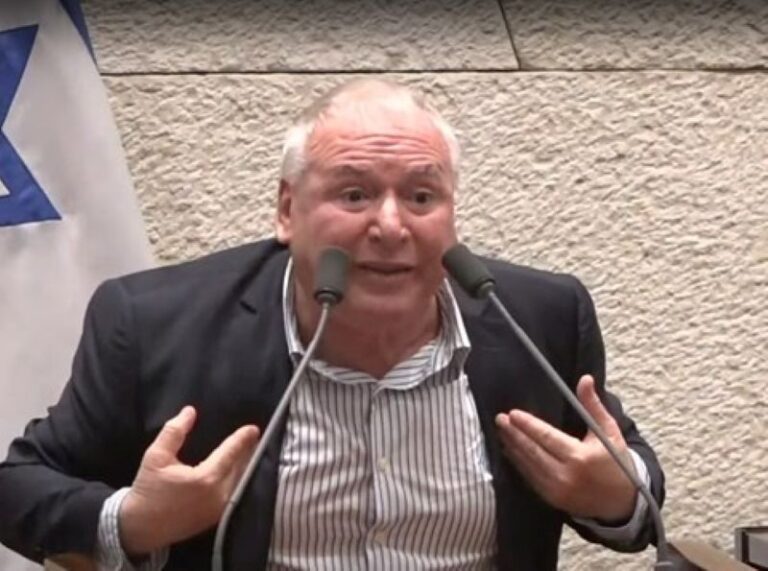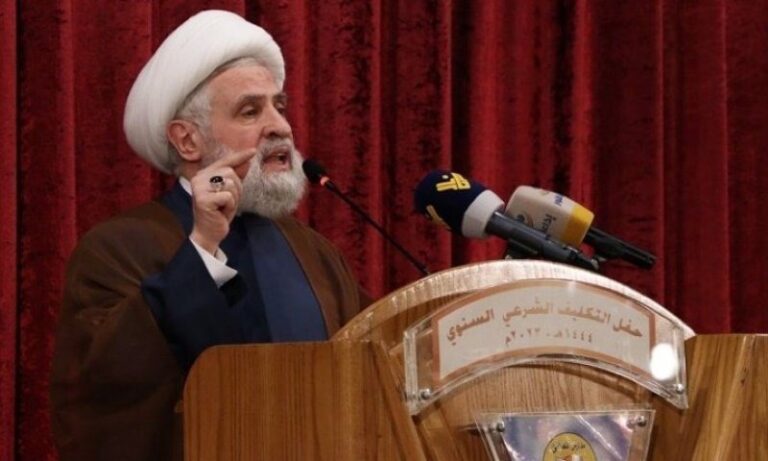 [By Yaakov Goldstein]
[By Yaakov Goldstein]
This past August, the CEO of the Metropolitan Council on Jewish Poverty was arrested and charged with stealing more than $5 million during his tenure in that position which began in 1993. Then a senior executive at a prominent Jewish nonprofit organization resigned from his position because of his alleged link to this scandal. Back in 2011, a treasurer of a New York shul was sentenced to up to 4 years in prison for stealing more than $634,000 from the shul’s bank account. And just this past week, a New York rabbi and three others were indicted for stealing over $12.4 million in public aid for disabled preschoolers and using it to spruce up their homes, get catering discounts and fund a relative’s cosmetics business. If convicted, each faces up to 25 years in prison.
Almost every day we read about cases of corporate fraud and abuse both nationall y and internationally. Nonprofit organizations are no exception, and sadly, neither are our local mosdos. Actually, in many respects, it is easier to commit theft and fraud in nonprofits than in commercial entities.
The passuk in Yeshayah, “V’amech kulam tzaddikim”, seems to be stating categorically that every Jew is a tzaddik by the sole virtue of being born Jewish. If taken at face value, on what basis, then, are mosdos justified in implementing strong internal and financial control policies and enacting measures that can detect or prevent theft and fraud? Don’t our hardworking professionals and lay leaders deserve a chezkas kashrus?
Based on my experience working with lay leaders and professionals in day schools around the country, and the many I have come to know over the past 14 years in my position at Torah Institute of Baltimore, the great majority fulfill their tasks and responsibilities with honesty and integrity. I believe our mosdos are filled with people who have yiras Shamayim and go about their (often thankless) jobs with the utmost dedication, all the while being overworked and underpaid.
However, experts in the field of fraud examination with whom I have spoken will tell you that most of those who perpetrate theft do not start with the intention to steal. Years can go by during which they fulfill their tasks and responsibilities in a trustworthy manner. Then one day they are faced with an overwhelming expense, be it a wedding or a large unexpected medical bill. The pressure can be enormous and the rationalization to “borrow” from the institution’s account is beyond enticing. They figure they will pay it back soon and no one will ever know the difference. But they don’t pay it back. And they “borrow” again and again until they are swept up and trapped in a current of theft and deception from which they cannot escape.
Aside from the perpetrator, who is ultimately re sponsible, it is the board of directors who is guilty of negligence. In many local mosdos, the individuals in charge of the finances are people whom board members grew up with and have known for years. They share in each other’s simchos, their kids play together, or they may sit side by side in shiur. Putting absolute trust in such individuals is entirely understandable. But for those who sit on the board of a local institution and are charged with safeguarding the hard-earned mamon hekdesh, such blind trust is inexcusable. Everyone assumes bad things can never happen and will never happen – until they do.
Board members of our local mosdos have a fiduciary duty, a sacred duty, to take steps to minimize the risk of fraudulent activity. These steps are not difficult or expensive. Paying thousands annually to hire an outside auditor to conduct an internal control or fraud detection review is not necessary. Rather, a finance oversight committee of two or three fin ancially literate and responsible lay people, investing one or two hours a month of their time, is more than sufficient to reduce this risk to a minuscule level. The mere existence of such a committee alone would act as an effective deterrent.
Rudimentary steps could include reviewing the monthly bank reconciliation and bank statement, the cash disbursement register, the monthly cash receipts report, and a report of all recorded non-cash transactions. In addition, a system could be set up to inform the staff that donations in checks and cash, anonymously given and otherwise, will be sent in periodically and monitored to ensure complete and proper processing. For online accounts, automatic e-mail notifications for any transaction or change should be sent to at least two members of the finance oversight committee. Purchasing a fidelity bond insurance policy should also be considered as a practical step.
Much ink has been spilled in our community on the is sue of living beyond our means. I don’t think anyone can argue that for many, the temptation to build a huge and luxurious house, make grandiose chassanas and buy the fanciest cars and clothes is enormous. The pressure to live up to a certain ‘image’ and to live a wealthy lifestyle can be for some a tremendous nisayon. In this type of environment, it is no wonder that the risk of fraud and deceit is increased, for the reality is we all have weaknesses.
But how then do we understand the pasuk “V’amech kulam tzaddikim”? The explanation is that this nevuah was regarding future generations. At that time, Hashem will metaher all the Jews gathered in Eretz Yisrael and the entire Jewish nation will in fact be righteous (may those days come soon).
But we are not there yet.
Thus we should learn from Moshe Rabbeinu, who in Parshas Pikudei made a full accounting of all the contributions for the Mishkan under his and Betzalel’s supervisio n. He understood that leaders, regardless of their high stature, must take all possible steps to prevent even an inkling of suspicion.
We should learn from the officers in charge of withdrawing the funds donated to the Beis HaMikdash. When they entered the lishkah, they did so barefoot and wearing clothing that contained no hemmed parts, no wide sleeves, and no pockets or cuffs, so that it would be impossible for them to hide any coins lest they be suspected of stealing.
We should learn from Chazal, who tell us it is not enough for one to know that one’s actions are proper in the “eyes of Hashem”; rather, one must act even in a way that removes any suspicion in the eyes of people as well.
So just how should those charged with implementing strong financial oversight and controls go about this task? They should do so with extreme sensitivity, an ayin tov, and with a sense of gratitude and goodwill toward the professional staff. However, p erhaps the single most important decision an institution can make is choosing the members of such a committee (or any lay committee for that matter).
In selecting a committee, the primary focus should be on individuals who are professionally accomplished, successful, and respected – yet unassuming and humble. The net financial worth of a person, whether self-earned or by virtue of the family one is born or married into, should be secondary at best and perhaps not even considered at all. Rather these committees should be comprised of people who are discreet and constructive; who seek to build up, not tear down; and who shun gossip. I am sure that most large donors, when they see an institution run with ehrlichkeit by a leadership of impeccable character, will give no less than if they themselves were in the position of leadership.
Ultimately, the hishtadlus of implementing proper policies and procedures is the easy part. The real key to the success of a mosad lies in creating a culture of friendship, trust, respect and sholom among the professional staff and lay leadership. And it is also the most difficult to attain and sustain because every day the Soton is out to destroy it. Yet mosdos that are wise in their ways and make it a priority to create this type of culture, will be zocheh to Hashem’s brocho and reap the tremendous benefits that will surely follow.
About the Author: Yaakov ‘Jake’ Goldstein is a CPA and serves as Executive Vice President of Torah Institute of Baltimore. He also coaches heads of school, executive directors and lay leaders of day schools and non-profit organizations in every area of management, finance and administration.
NOTE: The views expressed here are those of the authors and do not necessarily represent or reflect the views of YWN.
DO YOU HAVE AN OPINION YOU WOULD LIKE TO SEE POSTED ON YWN? SEND IT TO US FOR REVIEW.
(YWN World Headquarters – NYC)











12 Responses
Agree 100%, just not sure how to move this from “internet activism” and apply this to practical real life.
Even Moshe Rabbeinu wore a beged with no hem during the 7 days of meluim to avoid any and all possible accusations but forgetting about that, the pasuk relates that VeHeim Yikchu es Hazahav, (They shall take the gold) when collecting and Chazal teachs us in many places in Shas that any collections should always be done with more than one person. Of course, the Torah and Chazal may not have been as smart or as frum as we are today so we dot need these precautions.
#1: “as long as your in the USA then YOU are living in Sedom.”
All other places on this miserable planet qualify for Sedom membership. No exceptions.
V’hameivin yavin.
Excellent piece and certainly reflects The knowledge and experience the writer of this op-‘Ed writes. Internal controls will help prevent and identify instances of fraud. However, the mindset and culture of those involved in these mosdos has to be such that they welcome the concept of an annual audit and establishment and full implementation of an internal control system. For too many decades, nobody has ever looked at these nonprofit organizations as they have grown significantly in size,.. The Jewish community must demand change. Personally, I trust very few nonprofit mosdos where the EDs have been in place for far too many years and where the board of directors have been the same for years.
I cannot aggree more the article is 100% correct. The torah tells thte Yosef Hazadik in Mitzraim did not take a penny for himself the Seforono says ‘that Yosef who brought all the riches to Egypt did not send any money or silver to Cannan to his family’.
The halocho is that tzedoko money must be collected by two people and distributed by three people.
Rabbi (Mr) Goldstein is correct in his suggestion, a lay commitee made up of reputable people must be in charge of all disbursements and expenditures, but this committee should be made up of persons who are not friends, associates or relatives of the executive director or the menhael of the mossad.
I once heard from an Odom Godol whom I knew personally very well and his honsety was beyond reproof, he quoted from a famous chasidishe sefer ‘that the reason we see children beng dishonest or stealing chas vesholom is beacause the parents fed them with non kosher money’, and he explained to me that this means money earned with saying a lie, claiming goverment handouts when one is not entitled to this money and the list goes on.
Maybe if we will all be honest careful with our speech and respect one another the one above will have mercy on us and send us Moshiach.
Jake, you hit the nail on the head, as usual. They should implement your idea in the Kashrus world as well.
P.S. We shared some great chavershaft when we were together in our Dera – “Sorotskin 18” back in the 80’s in Shaare Chaim.
We’re waiting for you to come visit us in Flatbush for that “one” Shabbos you have “off”, a year!
Keep up the Kiddush Hashem that you & your Mishpacha are always doing.
Y.G.
good article but until the community itself will look at these action as stealing and treat the ones would who do this as gonoven nothing will change sadly.
Why aren’t the schools open about how the tuition money is spent etc. if they have nothing to hide?
I was under the impression that at least in the US that the schools had a tax status such that they needed to show their books. Why all the secrecy?
Jake,
We can make it happen. All we need to do is to stop donating to non-profits and other charitable organizations that do not have an annual audit. It would not be a bad idea to start an organization that certifies monthly bank recs and annual audits are done. We rely on supervision for kashrus. Why not for the kashrus of the way money is handled at an organization we donate too?
It would not be a bad idea to require auditing of even organizations that are not non-profits but take in a lot of money from the Frum community such as Areivim. Their literature shows they paid out millions but since it is not required to be audited does anyone really know how much comes in or goes out?
Why would anyone endorse an organization that deal in such large sums of money and is not required to be audited?
Keep up the good work Jake!
You can always demand a 990 from an organization before you make a donation.
You can get form 990s from most charities off the internet. Guidestar dot org does a great service by getting them from the IRS and putting them online.
Re comment 11: I have looked on line for many form 990’s, i.e., Internal Revenue Service Form 990, Return of Organization Exempt from Taxation Under Section 501(c), etc. There are a number of problems with the reports, including the following:
1. Many organizations are years late in filing the forms, and the IRS apparently, rightly or wrongly, lets them slide.
2. The forms are not required to be independently audited and are based solely upon management’s information and records. If management does not consult with accountants who understand generally accepted accounting principals (GAAP), the returns could be substantially inaccurate. Independent audits would result in substantial differences in the substance of the information in these reports.
3. The reports really do not provide enough information to enable a reader to understand the financial condition and operation of the organizations. Only an active governing board can really require management to provide accurate, meaningful information in the organizations’ financial statements.
4. I seriously doubt that management of many organizations takes to heart the importance of sound and meaningful financial reporting. For most organizations, they feel that if the IRS does not find outright theft, the organizations are doing an adequate job of financial reporting.